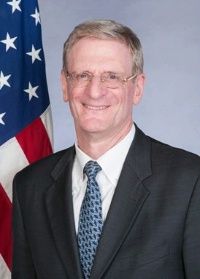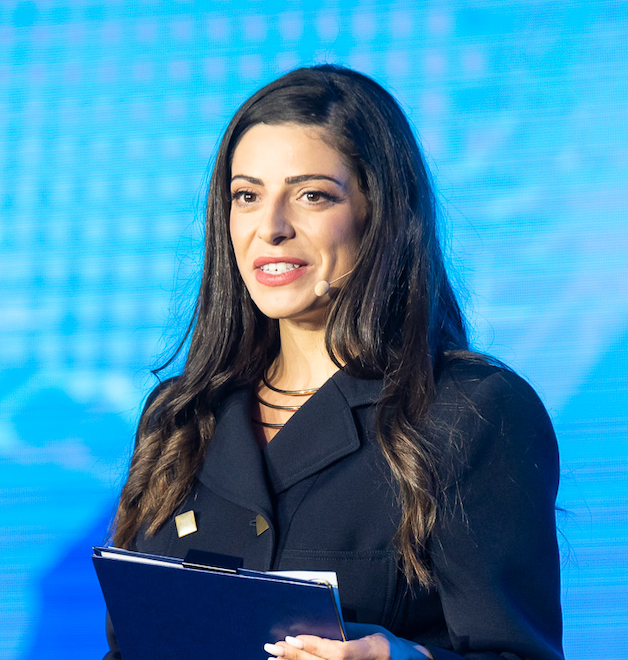{
"authors": [
"Federica D’Alessandra",
"Pierre-Richard Prosper",
"John Clint Williamson",
"Todd F. Buchwald"
],
"type": "event",
"centerAffiliationAll": "dc",
"centers": [
"Carnegie Endowment for International Peace"
],
"collections": [
"Building Resilient Multilateralism",
"Strengthening the International Legal Order"
],
"englishNewsletterAll": "",
"nonEnglishNewsletterAll": "",
"primaryCenter": "Carnegie Endowment for International Peace",
"programAffiliation": "GOI",
"programs": [
"Global Order and Institutions"
],
"projects": [],
"regions": [],
"topics": [
"Global Governance"
]
}
Trump 2.0 and Global Criminal Justice: International Accountability and What’s Next for the U.S.
Thu, December 5th, 2024
Virtual
Invalid video URL
The incoming Trump administration will introduce a new chapter in American foreign policy and reshape the nation’s approach to global criminal justice and the pursuit of accountability for international crimes. During his first term in office, President Donald Trump and his administration committed to holding ISIS accountable for their crimes, condemned regimes—including Syria and Iran—for their human rights violations, and imposed sanctions on China over its treatment of the Uyghurs. At the same time, the administration also pursued a policy of overt confrontation with the International Criminal Court (ICC), whose investigations into Afghanistan and in the Palestinian territories were perceived to be a threat to the interest and national security of the both the U.S. and Israel by the administration. Although U.S. opposition to the ICC was not a novelty feature of the Trump administration, its hardline policy towards the ICC went well beyond rhetorical denunciation, resulting in the imposition of sweeping sanctions on the ICC and its officials.
The Biden administration lifted the sanctions, in pursuit of cooperation where ICC activities and U.S. interest aligned, going as far as providing direct U.S. support for the ICC investigation into Russian war crimes in Ukraine. However, this support quickly evaporated following the ICC Prosecutor’s announcement that it would seek arrest warrants against both Israeli and Hamas leaders in relation to the ongoing war in Gaza, resulting in the House of Representatives passing a new ICC sanctions bill (H.R.8282), currently before the Senate.
Against this backdrop of complex U.S.-ICC relations, the Carnegie Endowment’s Global Order and Institutions program will convene a panel of three former U.S. Ambassadors-at-Large on War Crimes Issues and Global Criminal Justice to discuss what’s next for U.S.- ICC relations, what role we might expect the U.S. to play on global accountability issues under the second Trump administration, and where progress might be possible, either on a bipartisan basis or under the priorities of the incoming administration.
Carnegie does not take institutional positions on public policy issues; the views represented herein are those of the author(s) and do not necessarily reflect the views of Carnegie, its staff, or its trustees.
Event Speakers
Federica D’Alessandra is a nonresident scholar with the Global Order and Institutions Program at the Carnegie Endowment for International Peace.
Ambassador Pierre-Richard Prosper
Former U.S. Ambassador-at-Large for War Crimes Issues (2001-2005)
Ambassador Prosper was the U.S. ambassador-at-large in charge of the Secretary of State’s Office of War Crimes Issues. He was appointed in 2001 by President George W. Bush and, after being unanimously confirmed by the U.S. Senate, served until October 2005.
Ambassador John Clint Williamson
Former U.S. Ambassador-at-Large for War Crimes Issues (2006-2009)
Ambassador Clint Williamson (Ret) served as U.S. ambassador-at-large for War Crimes Issues (2006-2009), during the Bush and Obama administrations, leading U.S. diplomatic and policy efforts to prevent and respond to mass atrocities and to further accountability for atrocity crimes globally. He currently serves as the lead coordinator of the Atrocity Crimes Advisory Group (ACA) for Ukraine, a joint initiative of the United States, European Union, and United Kingdom. He is the senior director for International Justice at Georgetown University. He also serves, on appointment by the International Court of Justice, as the presiding arbiter of the Brčko Arbitration Tribunal in Bosnia and Herzegovina.
Ambassador Todd F. Buchwald
Former U.S. Ambassador-at-Large for Global Criminal Justice (2015-2017)

Todd F. Buchwald served as ambassador and as special coordinator for the State Department’s Office of Global Criminal Justice from December 2015 through July 2017. Prior to assuming this position, Mr. Buchwald served as a career lawyer in the Department of State, including as the assistant legal adviser for Political-Military Affairs during the Clinton and Bush administrations, and the assistant legal adviser for United Nations Affairs during the Bush and Obama administrations. Since leaving the State Department, he has served as a fellow at the Woodrow Wilson International Center for Scholars, as the inaugural Tom A. Bernstein Genocide Prevention fellow at the U.S. Holocaust Memorial Museum, and as co-chair (with Beth van Schaack) for the American Society of International Law Task Force that produced the report on Policy Options for U.S. Engagement with the International Criminal Court. He is currently a member of the United Nations Committee Against Torture and Professorial Lecturer in Law at George Washington University Law School.
